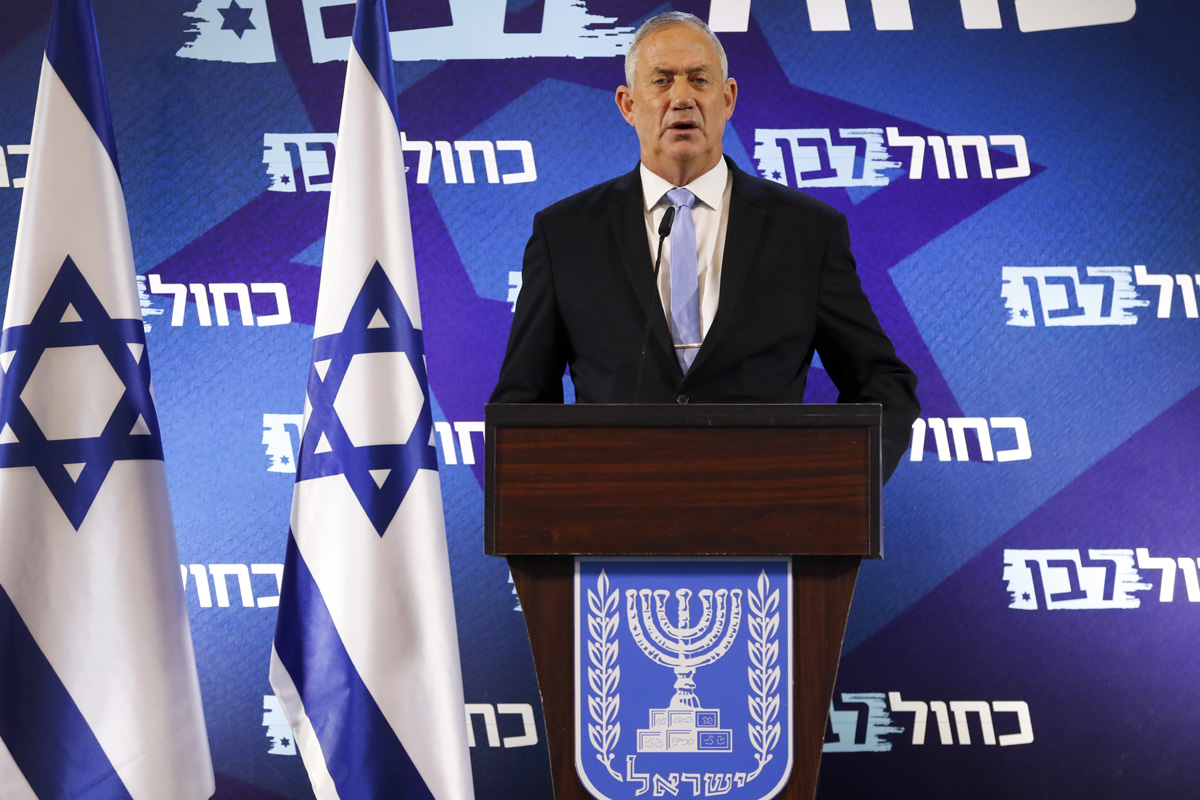Elon Musk calls for peace in cryptic post amid Iran-Israel war
His comments come amid recent attacks on Israel by Iran, reportedly in retaliation to the attack on their embassy.
Israelis are by and large frustrated because the vote yields no decisive outcome.

Israeli Kahol Lavan (Blue and White) political alliance leader Benny Gantz gives a statement after the dissolution of the Knesset in the Israeli coastal city of Tel Aviv on December 12, 2019. After months of deadlocked talks and the indictment of the prime minister, Israel moved Wednesday to its third election in 12 months, a first in the history of the Jewish state. Rightwing Prime Minister Benjamin Netanyahu, neck and neck with centrist rival Benny Gantz in April and September polls, will this time go to the people with an extra millstone around his neck -- an ongoing indictment over a series of corruption charges. (Jack GUEZ / AFP)
Though circumstances are radically different, the predicament is not dissimilar. A melting pot of the Middle East, Israel is headed for an unprecedented third election within a year. With governance in limbo after the two previous elections, the run-up to the next tryst with democracy is bound to prolong the political stalemate, which ought not to be confused with policy paralysis, one that has undermined the faith of the citizen in the democratic process.
The deadline for the formation of a new government has lapsed 48 hours ago and the political deadlock in the nerve centre of the Middle East persists. The fresh election, therefore, is scheduled to be held in March. Benjamin Netanyahu and his chief challenger, Benny Gantz, have for weeks insisted they want to avoid another expensive election campaign that is expected to produce similar results. But neither has been willing to compromise on their core demands for a powersharing agreement.
Netanyahu’s recent indictment on corruption charges has added a murky legal facet to the narrative. The successive elections have yielded nothing in terms of governance. Following the September elections, both men failed during their officially mandated time to form a governing coalition on their own. Then, in a final three-week window, they could not join forces to avoid another vote. Both sides said they were working until the last minute to find a way out of the deadlock.
Advertisement
However, a breakthrough seemed highly unlikely. This was reaffirmed on Wednesday when both sides submitted legislation to dissolve Parliament and schedule fresh elections on 2 March. If the bill is not passed by the deadline, new elections will automatically be arranged on 10 March. Given the direly fractious character of the country and the increasing mistrust between the opposing camps, it is uncertain whether yet another vote will end the electoral syndrome.
Fiscal analysts have estimated that another election campaign and the national election day holiday will cost the Israeli economy billions of dollars. Already, 18 months of caretaker governments have impeded crucial legisation, affecting key appointments, and the passing of the national budget. Indeed, the entire decision-making apparatus has been stalled, a denouement that has critical implications.
Israelis are by and large frustrated because the vote yields no decisive outcome. In addition, the bitter irony of Israel’s politics must be that Prime Minister Netanyahu, who is very popular within his own constituency, has been indicted for very serious crimes. The most straightforward way out of the stalemate would be for Gantz’s centrist Blue and White party to form a unity government with Netanyahu’s Likud. Together, they control a solid majority in the 120-seat Knesset. However, beyond numbers must be the grim reality. Gantz’s party refuses to sit with Netanyahu, who was indicted last month on charges of accepting bribes, fraud and breach of trust.
Advertisement